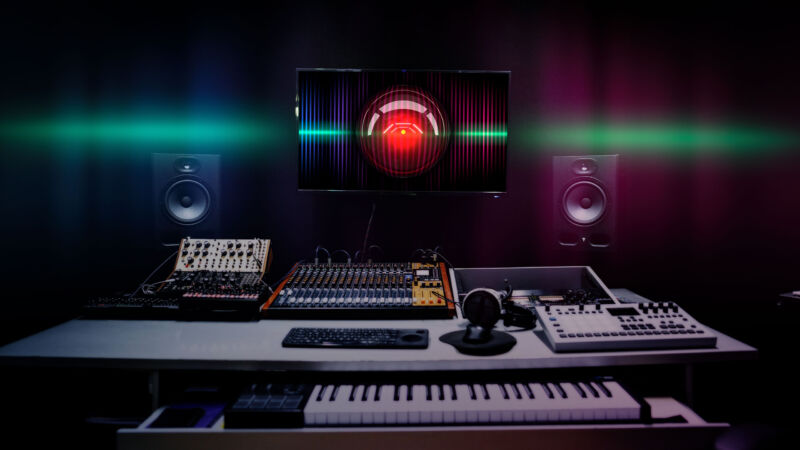
It was just a stray remark at the end of a guitar lesson last fall.
My teacher is a veteran musician whose band has had both major label and indie record deals, and he loves the analog, the human, the vintage, the imperfect. So it didn't surprise me to learn that he still likes to mix tracks with an old analog board or that he has a long-time "mastering guy" who finalizes the band's albums.
What did surprise me was the comment that he had for some time been testing LANDR, the online music service that offers AI-powered mastering. Pay a monthly fee, upload a well-mixed track, and in a minute, the system spits back a song that hits modern loudness standards and is punched up with additional clarity, EQ, stereo width, and dynamics processing.
After mastering, the end result should sound "more like a record," but this stage of the music-making process has always required subtle value judgments, as every change operates on the entire stereo track. And well-trained humans excel at subtle value judgments.
So I was expecting some line about the slight edge that ears and hands still held over our machine overlords. Instead, I heard: "In the last year, LANDR has improved so much that it now sounds as good as, or in some cases better than, things we've had mastered professionally."
AI-powered mastering systems allow endless tweaking (mastering engineers generally offer a specific number of revisions). They return results within a minute (mastering engineers might need up to a week). They are comparatively cheap (mastering engineers might charge anywhere from $30 up to a few hundred bucks a track, depending on their experience). And now they can sound better than humans? This statement, coming from a guy who won't buy a guitar made after 1975, was high praise indeed.
I flagged the remark as something to investigate later.
A few weeks after our conversation, Apple released version 10.8 of Logic Pro, its flagship digital audio workstation (DAW) and the big sibling to GarageBand. Stuffed inside the update was Mastering Assistant, Apple's own take on AI-powered mastering. If you were a Logic user, you suddenly got this capability for free—and you could run it right inside your laptop, desktop, or iPad.
So between my guitar teacher and Apple, the consensus seemed to be that AI-powered mastering was in fact A Thing That Could Now Be Done Well. Which meant I had to try it.
See, in 2023, I built a small home music studio for under a thousand bucks—gear is ridiculously cheap and high quality compared to the old analog era—and taught myself tracking and mix engineering. This was a surprisingly technical process. It took months before I knew my 1176 from my LA-2A or my large condenser from my dynamic mic or my dBFS from my LUFS. Mic placement alone, especially for complex analog instruments like acoustic guitars, took considerable trial and error to get right.
Alongside this engineering boot camp, I began writing songs as part of my long-sublimated desire to don the tight leather pants and bring real rock'n'roll back from the dead. I liked some of my compositions, too—not always a given in this sort of creative endeavor. The lyrics felt clever, the melodies hummable. I began to record.
But something stood in my way. Even as I learned proper technique and my recordings went from "meh" to "now we're talking," they never quite possessed that pro-level radio sheen. How to get it? Many people mumbled "mastering" like it was a dark art, as though some hidden final alchemy would "glue" your track together and lacquer it in a high-gloss finish, and they said this alchemy could only be performed by grizzled mastering engineers working with special mastering compressors and EQs of almost unfathomable complexity.
Promoted Comments